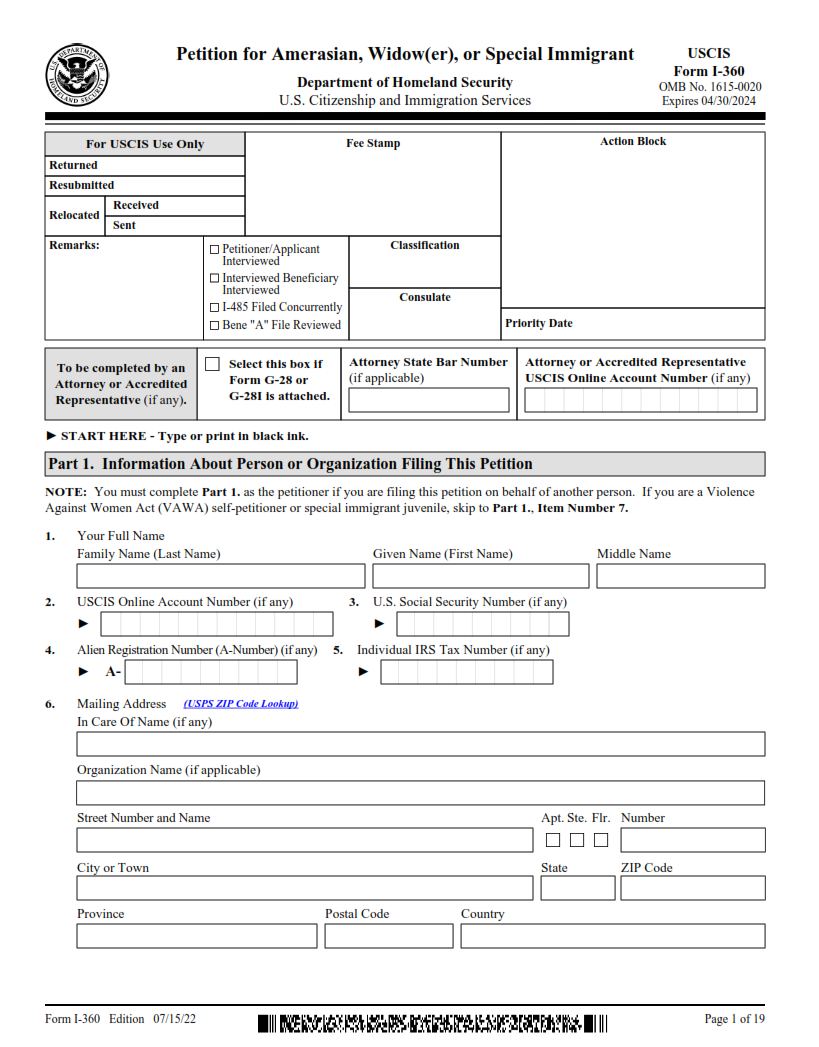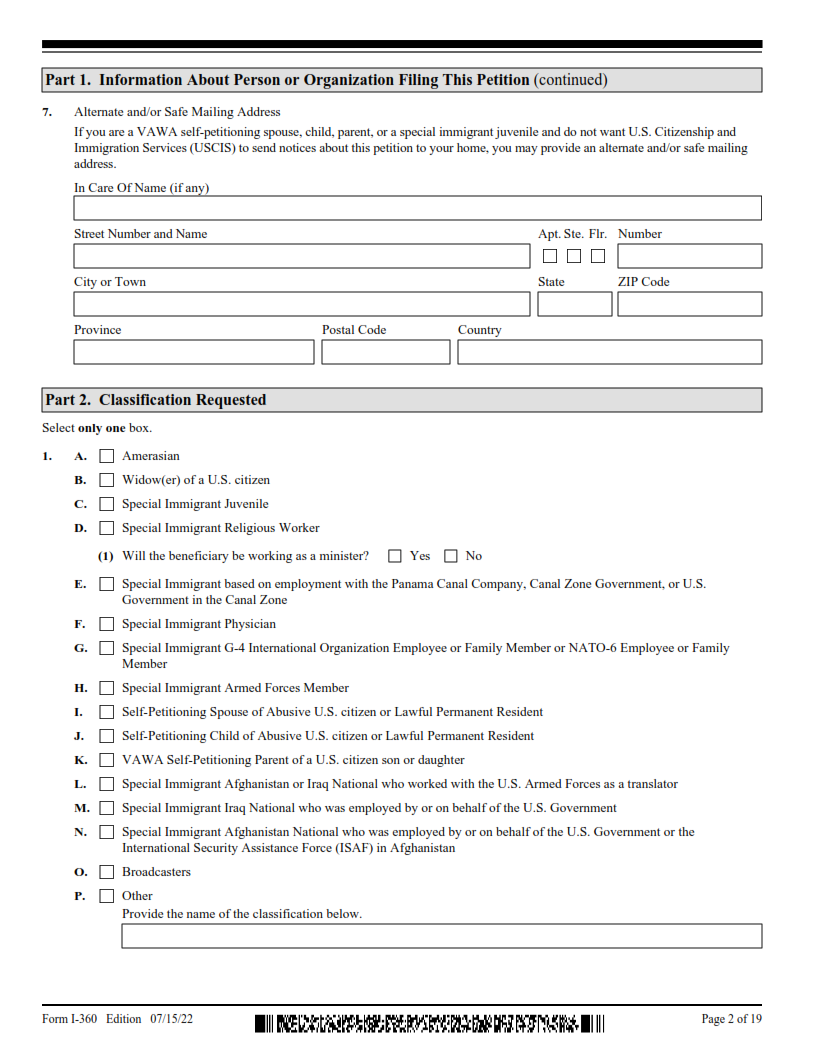FINDERDOC.COM – I-360 Form – Petition for Amerasian, Widow(er), or Special Immigrant – Immigration to the U.S. can be an arduous process for those who don’t have the same privileges as others. The I-360 Form is a petition that helps certain individuals gain access to permanent immigration status in the United States, including Amerasian, widowed, and special immigrants. This article aims to educate readers about this form and how it can help them take the first steps towards achieving U.S. residency or citizenship. We will look at who exactly qualifies for this petition and how they should go about filling out the form correctly and completely.
Download I-360 Form – Petition for Amerasian, Widow(er), or Special Immigrant
| Form Number | I-360 Form |
| Form Title | Petition for Amerasian, Widow(er), or Special Immigrant |
| File Size | 793 KB |
| Form By | USCIS Forms |
What is an I-360 Form?
The I-360 form, or Petition for Amerasian, Widow(er), or Special Immigrant, is an application used by certain individuals to apply for permanent residency in the United States. This form is used by immigrants who have been granted special status due to their circumstances. For example, this includes those who were born in Vietnam after December 31st of 1995 and whose parents are not Vietnamese citizens. Additionally, it may be used by widowed individuals and victims of abuse from any country.
Filing an I-360 petition requires applicants to submit proof that they meet the eligibility criteria established under U.S immigration law. Those filing must provide documents such as birth certificates, marriage records or divorce decrees as well as evidence of their relationship to a qualifying relative within the United States (such as a parent or spouse).
What is the Purpose of the I-360 Form?
The I-360 form is an important document for immigrants looking to attain legal permanent residency or citizenship in the United States. This form serves as a petition for Amerasian, Widow(er), or Special Immigrant status, and is available from the United States Citizenship and Immigration Services (USCIS).
The purpose of the I-360 Form is to provide evidence that an individual meets the eligibility requirements for one of these three special immigrant categories. It must be completed fully and accurately in order to be accepted by USCIS. When filing this application, applicants must provide proof of their eligibility along with supporting documents such as birth certificates, marriage certificates, divorce decrees, military records or employment records. The accuracy of these documents will determine whether or not USCIS approves their application.
Where Can I Find an I-360 Form?
The I-360 form is a petition for Amerasian, Widow(er), or Special Immigrant status and is available on the United States Citizenship and Immigration Services (USCIS) website. The form needs to be filled out in its entirety and then submitted along with any necessary supporting documents. It’s important to note that the instructions accompanying the form must also be followed carefully in order to ensure that all required information is included.
When obtaining an I-360 form, it’s important to make sure you download the most current version from the USCIS website as older versions are not accepted. Additionally, applicants should double check all entered information before submitting as errors can lead to delays or rejection of the application altogether.
I-360 Form – Petition for Amerasian, Widow(er), or Special Immigrant
The I-360 Form is used to petition for Amerasian, Widow(er), or Special Immigrants. The form is part of the U.S. Citizenship and Immigration Services (USCIS) Green Card process, and it allows applicants to obtain permanent resident status in the United States.
In order to be eligible for an I-360 visa, applicants must meet certain requirements which include providing proof of their Amerasian, widow(er), or special immigrant status as well as evidence of their financial ability to support themselves while living in the United States. In some cases, additional documentation may be required such as medical records or birth certificates that verify the applicant’s identity and immigration status.
I-360 Form Example


